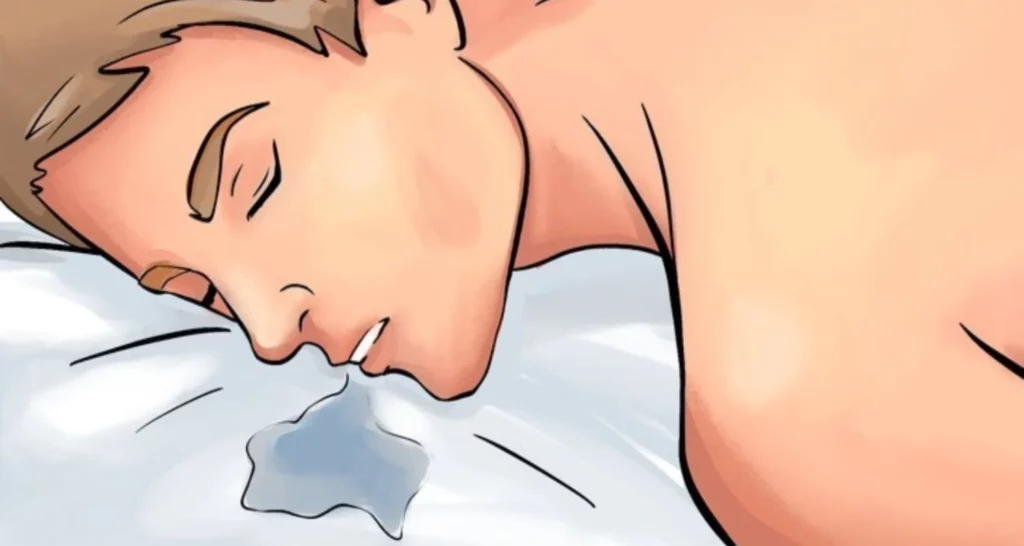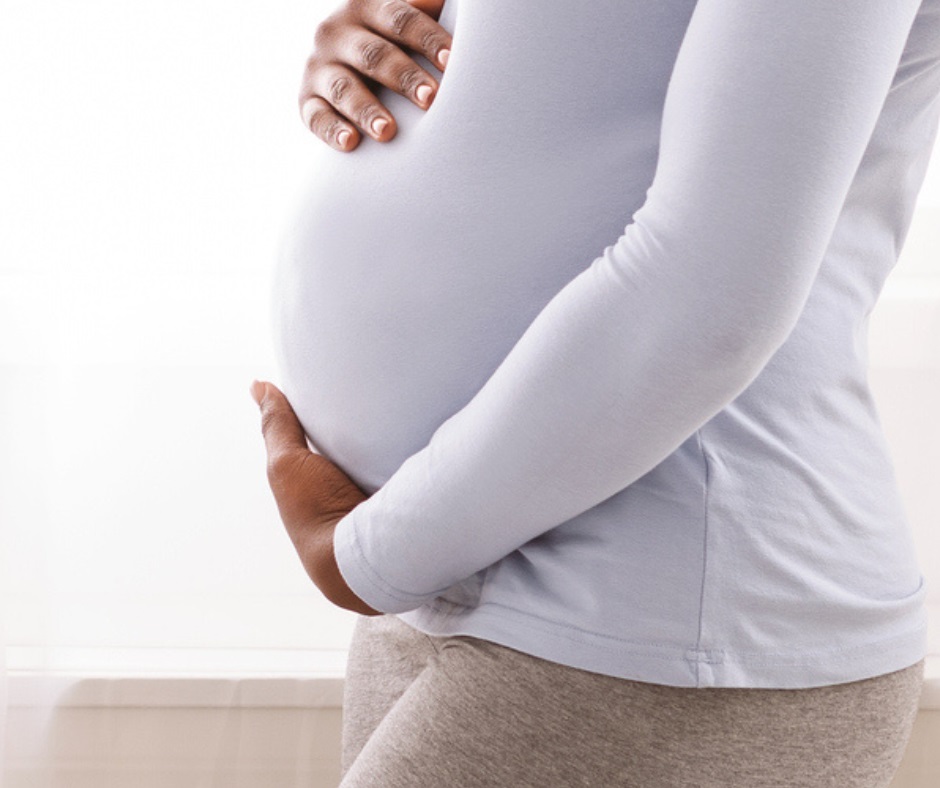Last Updated on: 27th December 2025, 05:30 am
Saliva is a watery fluid secreted by glands in the mouth. It plays an important role in chewing, digestion, protection against infection, speech, and taste. But what happens when more saliva than necessary is produced? Excessive saliva during pregnancy (gravid ptyalism) is a mental and physical condition that can be very uncomfortable and unpleasant. It usually occurs during the first three months and can become a cause for concern for the mother. Several doubts about this annoying situation are resolved below.
There’s also a possibility of tooth discomfort during this stage. Fortunately, we have thorough information on dental pain during pregnancy that can assist you in knowing what to do.
What is excessive saliva during pregnancy (gravidic ptyalism)?

Excessive Saliva During Pregnancy or Ptyalism (also called hypersalivation or sialorrhea) refers to the excessive production of saliva. A person suffering from ptyalism could produce more than 2 liters of saliva a day. It can occur in pregnant women from the first weeks of pregnancy. Generally, it disappears after the first trimester; however, in some cases it only stops at the time of delivery.
What does it feel like to have excessive saliva during pregnancy or ptyalism?
Often, excessive saliva During Pregnancy can lead to various complications:
● Difficulty speaking
● Distension of the cheeks
● Swollen salivary glands
● Sleeping problems
● Fatigue and tiredness
● Bad taste in mouth
● Decreased appetite
● Depression
● Difficulty relating to other people
● Increased feeling of nausea
What causes excessive saliva during pregnancy?

During pregnancy, the hormones produced are responsible for changes in the body that enable and finally give birth. They include estrogen, progesterone, prolactin, and relaxin, among others. It is known that saliva secretion is regulated by the nervous system, and it is believed that some hormones, such as those mentioned above, can affect this system by increasing salivary flow. However, so far this has not been proven, and the specific cause of ptyalism during pregnancy remains a mystery.
When is more common excessive saliva during pregnancy?
Excessive saliva during pregnancy or Ptyalism is thought to be more common in women who have:
● Family members who have suffered from ptyalism during pregnancy.
● A personal history of nausea or vomiting during pregnancy.
What to do about excessive saliva during pregnancy?
So far, no 100% effective treatment for excessive saliva during pregnancy has been found.
5 tips that may offer help:

1. Drink plenty of water to dilute the saliva produced to make it easier to swallow.
2. Chewing sugarless gum can make it easier to swallow excess saliva.
3. Avoid foods that induce excessive salivation, especially those containing starch: bread, rice, potatoes, etc.
4. Do not use alcohol rinses, as they could generate a sensation of dryness in the mouth.
5. Maintaining strict oral hygiene can prevent a bad taste in your mouth that can increase nausea.
In cases where excessive salivation does not disappear after the third month of pregnancy and significantly affects the quality of life of the mother, it is possible to resort to other treatments that, although they do not completely eliminate the condition, can help reduce its intensity. These alternatives should always be used under the approval and supervision of a doctor or dentist:
● Acupuncture
● Hypnosis
● Use of medications to reduce salivary flow
Is excessive saliva during pregnancy a reason to worry?
Suffering from excessive saliva during pregnancy should not be a concern, as it does not pose any risk to the baby or the mother. So far, hypersalivation has not been related to complications before, during, or after delivery. Furthermore, it has been shown that in all cases of excessive saliva production during pregnancy, the condition ceases after giving birth.
Does excessive saliva during pregnancy or ptyalism depend upon the sex of the baby?

This topic still generates a lot of controversy. Although a study carried out in 2018, (which included 963 pregnant women) showed that the sex of the baby did not increase the risk of excessive saliva during pregnancy, other analyzes have shown that this condition is more common when the baby is a boy. However, it is not something that has been proven with certainty.
Conclusion
Although excessive saliva during pregnancy is a harmless condition, it can significantly affect the expectant mother’s quality of life. There are no 100% effective treatments, but there are some ways to decrease saliva production. In most cases, this uncomfortable condition disappears after the first trimester of pregnancy, but when this does not happen, it is possible to request a professional treatment that improves quality of life.
Frequently Asked Questions
What causes excessive saliva during pregnancy?
Hormonal changes: During pregnancy, hormonal shifts can lead to an overproduction of saliva as your body adjusts to the new hormonal levels. Esophageal protection: Pregnant women often experience increased nausea and heartburn, which can result in vomiting. This can irritate the esophagus, prompting the body to produce more saliva to protect it.
How to reduce excess saliva during pregnancy?
To prevent hypersalivation during pregnancy, drink plenty of water or suck on a slice of lemon or ginger. In conclusion, increased salivation during pregnancy is generally not a cause for concern. If the extra saliva becomes uncomfortable, consult your doctor for advice on how to manage and reduce it.
How long does excessive saliva last during pregnancy?
Excessive saliva production is typically linked to nausea and vomiting (emesis or hyperemesis) during the first trimester. In rare instances, this increased salivation doesn’t subside after the first trimester and may persist or even increase until delivery.
What week does excess saliva begin during pregnancy?
It’s normal to experience increased salivation during pregnancy. This excessive salivation can begin suddenly, around two to three weeks after conception. It is believed that pregnancy hormones alter the function of your salivary glands, causing the nerves that control salivation to be more stimulated than usual.
How to reduce excess saliva during pregnancy?
To help manage hypersalivation during pregnancy, drink plenty of water and consider sucking on a slice of lemon or ginger. Generally, increased salivation during pregnancy is not something to worry about. However, if the excess saliva becomes bothersome, consult your doctor for strategies to reduce it.
Share:
References
1. Millard, E. (Nov 24, 2021). Excess saliva during pregnancy. BabyCenter. https://www.babycenter.com/pregnancy/your-body/excessive-saliva-during-pregnancy_9454
2. NCT. (Jul 11, 2019). Excessive saliva in pregnancy | Pregnancy, Worries and discomforts articles & support | NCT. NCT (National Childbirth Trust).
https://www.nct.org.uk/pregnancy/worries-and-discomforts/common-discomforts/excessive-saliva-pregnancy
3. Thaxter Nesbeth, KA, Samuels, LA, Nicholson Daley, C., Gossell-Williams, M. & Nesbeth, D.A. (Mar 1, 2016). Ptyalism in pregnancy – a review of epidemiology and practices. European
Journal of Obstetrics & Gynecology and Reproductive Biology, 198, 47-49. https://doi.org/10.1016/j.ejogrb.2015.12.022
4. Suzuki, S., Igarashi, M., Yamashita, E., & Satomi, M. (Nov 1, 2009). Ptyalism gravidarum. North American journal of medical sciences, 1(6), 303–304.
5. Bronshtein, M., Gover, A., Beloosesky, R., Dabaja, H., Ginsberg, Y., Weiner, Z. & Khatib, N. (Sep 1, 2018). Characteristics and Outcomes of Ptyalism Gravidarum. Israel Medical
Association Journal, 20(9), 573-575.
6. De Braga, V., Dahdouh, EM & Balayla, J. (Apr 9, 2022). Successful treatment of ptyalism gravidarum with clonidine hydrochloride: A case report. Case Reports in Women’s Health, 34, e00409. https://doi.org/10.1016/j.crwh.2022.e00409
-
Nayibe Cubillos M. [Author]
Pharmaceutical Chemestry |Pharmaceutical Process Management | Pharmaceutical Care | Pharmaceutical Services Audit | Pharmaceutical Services Process Consulting | Content Project Manager | SEO Knowledge | Content Writer | Leadership | Scrum Master
View all posts
A healthcare writer with a solid background in pharmaceutical chemistry and a thorough understanding of Colombian regulatory processes and comprehensive sector management, she has significant experience coordinating and leading multidisciplina...Recent Posts















